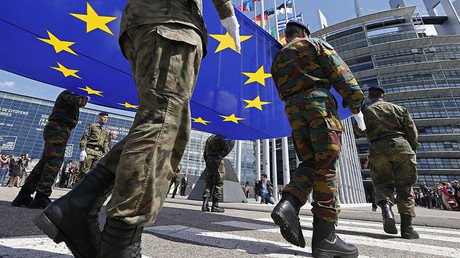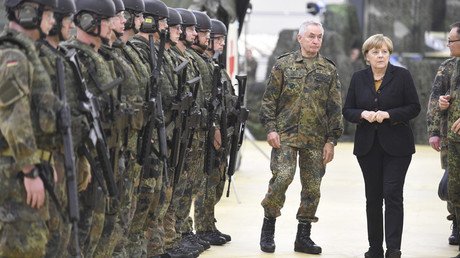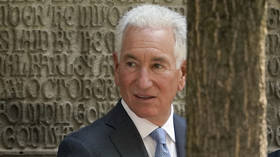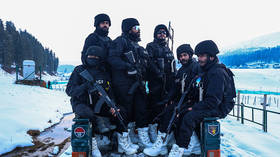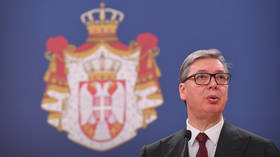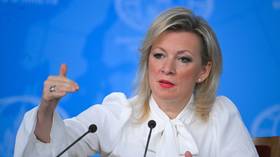‘European army is inevitable’ – German defense commissioner
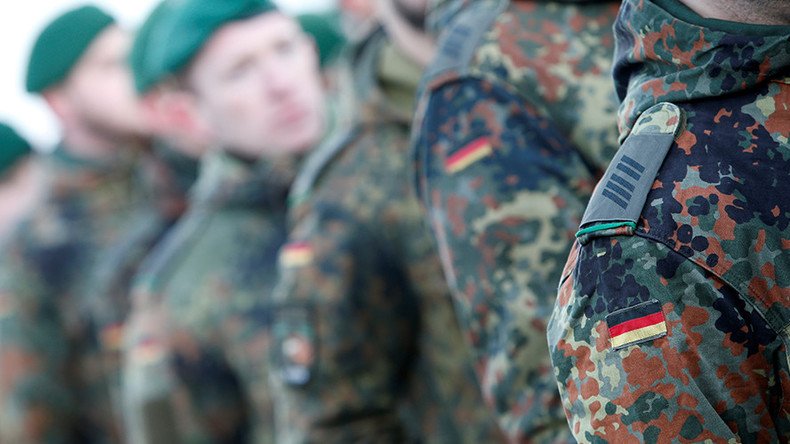
Germany’s parliamentary defense commissioner, Hans-Peter Bartels, has renewed calls for a joint EU army amid concerns about the reliability of the NATO alliance and disorganization and fragmentation of national defense structures.
Speaking to the German Press Agency on Monday, Hans-Peter Bartels, the Germany Parliamentary Commissioner for the Armed Forces, called on the 28-nation bloc’s militaries to unite into a single armed force.
“We are currently disorganized, technically fragmented and duplicate structures unnecessarily,” Bartels said, as quoted by the Telegraph. “We do not want to go down the solitary national path anymore. Not in Germany, not in the Netherlands, not in the Czech Republic and not in Italy.”
“In the end, there will be a European army,” he stated.
Since around 2013, Germany has been overseeing efforts towards closer EU defense integration through the Framework Nations Concept, through which it plans to share troops and capabilities with other European countries. Two Dutch brigades have already been integrated into the Bundeswehr’s Rapid Response Forces Division and 1st Armored Division, and there are also plans for Czech and Romanian forces to do the same.
In March, the European Union also announced the opening of a “joint military headquarters.” However, the center employs a mere 30 staff and its remit only extends to training missions in Mali, Somalia and the Central African Republic. EU Foreign Affairs Minister Federica Mogherini said that the joint military headquarters was “not a European army,” and that NATO would remain Europe’s go-to organization for defense and security.
Aside from Bartels, the concept of a European army has also been put forward by other figures in the EU establishment including the President of the European Commission, Jean-Claude Juncker, who told the newspaper Die Welt in 2015 that “a common European army would convey a clear message to Russia that we are serious about defending our European values.”
EU Army approved. What do YOU think of the 'military Shengen'? pic.twitter.com/G4kFLQIej8
— RT (@RT_com) 25 November 2016
There has been more talk of greater Europe defense integration, repeatedly opposed by Britain but supported by Germany and France, in the wake of Donald Trump’s remarks about NATO being “obsolete.” The US president had complained that some of America’s allies are not paying enough money towards their own defense. In May, German Chancellor Angela Merkel proclaimed that Europe can no longer depend on its allies in Britain and the United States and that “we Europeans truly have to take our fate into our own hands.”
#Europe needs own army, can’t rely on #US forever – EU Commission President https://t.co/GkSNf4YOKppic.twitter.com/z3yI0JLpHq
— RT (@RT_com) 10 November 2016
The Europeans are currently debating which form of military integration the EU states would choose to proceed with, after last November the EU Parliament passed a resolution paving the way for the creation of a defense union. The resolution envisions dedicating 2 percent of member nations’ GDP to defense, as well as establishing EU multinational forces to allow the bloc to act in any situation in which “NATO is unwilling to.”
Currently, the EU is considering three scenarios of integration.
The "Security and Defence Cooperation" scenario would see member states voluntary contribute to the rising challenges on a case-by-case basis.
The "Shared Security and Defence" scenario entails member states solidifying their defenses by contributing to a pool of financial and operational assets.
The last option, the "Common Defence and Security" scenario, would see the creation a common EU defense policy based on Article 42 of the EU Treaty.
In the meantime, the European Commission is stepping up the financing of the defense sector. Earlier this month, Brussels launched the European Defence Fund, which seeks to generate over €5 billion per year after 2020 to develop and procure new military technologies.
